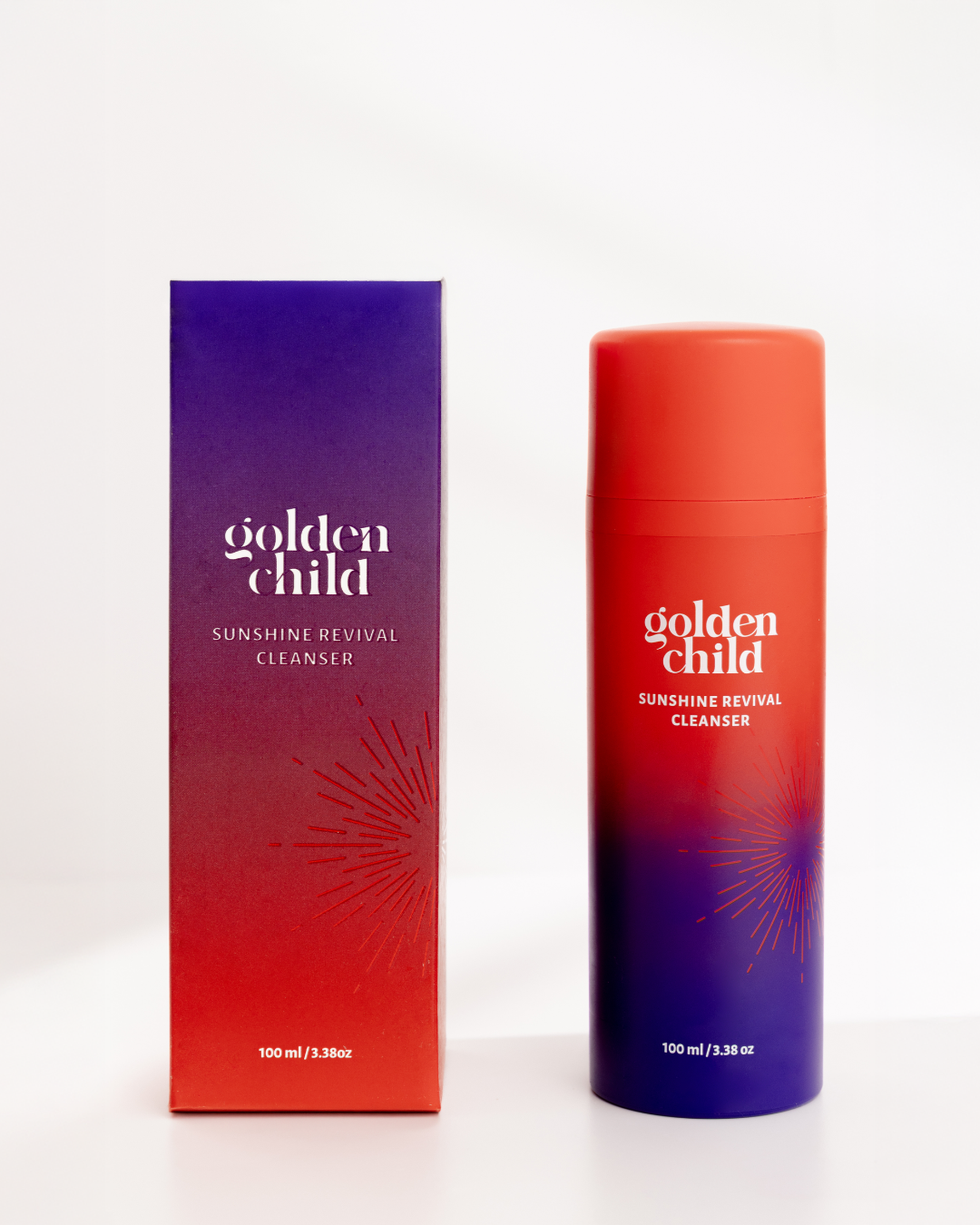Sensitive Skin Isn’t a Skin Type; It’s a Skin State

Sensitive skin isn’t always genetic. Often, it’s a temporary state triggered by stress, over-exfoliation, or environmental damage. Treating it means rebuilding your skin barrier, simplifying your routine, and avoiding common irritants not just switching products.
Are You Actually “Sensitive” or Just Overwhelmed?
If you’ve ever reacted to a product, battled redness, or felt like your skin flares up for no reason, you’ve probably labeled yourself as someone with “sensitive skin.”
But here’s the truth: sensitivity isn’t a fixed skin type, it’s a dynamic state.
This matters because it changes how you treat it. Instead of endlessly searching for “sensitive skin solutions,” the better question might be: what's triggering my skin to feel this way right now?
At Golden Child Skin, we believe in supporting your skin’s natural rhythm, not constantly trying to fight it. Let’s explore why your skin feels sensitive, what’s behind it, and what you can actually do to heal it.
What Is Sensitive Skin?
Sensitive skin is skin that reacts easily, whether to products, weather, stress, or internal triggers. Reactions might include:
- Burning or stinging after cleansing
- Redness and blotchiness
- Tightness or itching
- Flaky, dry patches
- Unexpected breakouts or bumps
But these symptoms don’t always mean you have sensitive skin as a skin type. Many people with oily or combination skin also experience periods of sensitivity.
What Causes Sensitive Skin?
1. Compromised Skin Barrier
When your skin’s outer layer (the barrier) is damaged, irritants can penetrate more easily and moisture escapes faster. This is the most common root cause of sensitivity.
Triggers: Over-cleansing, harsh exfoliants, retinoids, sun damage, dry air.
Read more: Why Am I Still Getting Pimples in My 20s?
2. Ingredient Overload
Even clean beauty can be too much. Using too many actives (think: acids, essential oils, retinol) can overwhelm your skin.
Look out for: Fragrance, alcohols, sulfates, synthetic dyes.
3. Environmental Stressors
Pollution, wind, cold air, and UV radiation all chip away at your barrier and trigger inflammatory responses.
4. Internal Stress & Hormones
Cortisol (the stress hormone) can weaken your skin’s defenses. Hormonal shifts (from cycle changes, pregnancy, or medications) can also spike sensitivity.
5. Underlying Skin Conditions
Eczema, rosacea, or allergic dermatitis can mimic sensitivity or cause it to worsen.
Read more: Skincare Routine For Soothing Irritated Skin
How to Treat Sensitive Skin (and Restore Balance)
1. Stop the Irritation Cycle
Press pause on strong actives for a few weeks. Focus on hydrating and calming ingredients, not exfoliating.
Ingredients to avoid:
- Benzoyl peroxide
- Harsh scrubs
- Artificial fragrance
2. Rebuild Your Skin Barrier
Support your skin with ceramides, fatty acids, and cholesterol. These are the building blocks of a healthy barrier.
Golden Child Tip: Use a barrier-repairing moisturizer both morning and night, especially if your skin feels tight or burns.
3. Simplify Your Routine
Less is more. A basic 3-step routine (cleanser, moisturizer, SPF) can do wonders.
Sample AM Routine:
- Creamy, non-foaming cleanser
- Barrier-supporting moisturizer
- Mineral-based sunscreen (zinc oxide or titanium dioxide)
Sample PM Routine:
- Gentle cleanse
- Lightweight calming serum (like niacinamide or centella asiatica)
- Richer night cream to seal in hydration

4. Use the Right Sunscreen
Sensitive skin burns faster, so sun protection is non-negotiable. Choose physical sunscreens (mineral) over chemical ones, which are less likely to cause stinging or breakouts.
Related products:
Common Myths About Sensitive Skin
Myth 1: I need more exfoliation to get rid of redness.
Truth: That usually makes it worse. Exfoliate no more than once a week—and only once your skin has calmed.
Myth 2: All-natural equals gentle.
Truth: Some plant-based ingredients (like essential oils or citrus extracts) can still cause major irritation.
Myth 3: Sensitive skin is forever.
Truth: For many people, it’s a temporary response, not a lifelong sentence.
Sensitive Skin Solutions That Actually Work
|
Concern |
Solution |
Key Ingredients |
|
Redness & Stinging |
Barrier-focused moisturizer |
Ceramides, colloidal oatmeal |
|
Flaky Texture |
Hydrating mask |
Hyaluronic acid, glycerin |
|
Unexpected Breakouts |
Soothing spot treatment |
Hydrolyzed Reishi mushroom extract |
|
General Sensitivity |
Daily calming serum |
Hydrolyzed Reishi mushroom extract |
Final Thoughts: Your Skin Is Talking, Are You Listening?
Sensitive skin isn’t something to “fix.” It’s your skin’s way of asking for support. Whether it’s reacting to too many products or just feeling worn down, the answer isn’t more, it’s less but better.
Golden child products believe that glowing skin starts with listening, respecting, and restoring. When your skin feels sensitive, that’s not weakness, it's a call to return to balance. We’re here to help you answer it.











